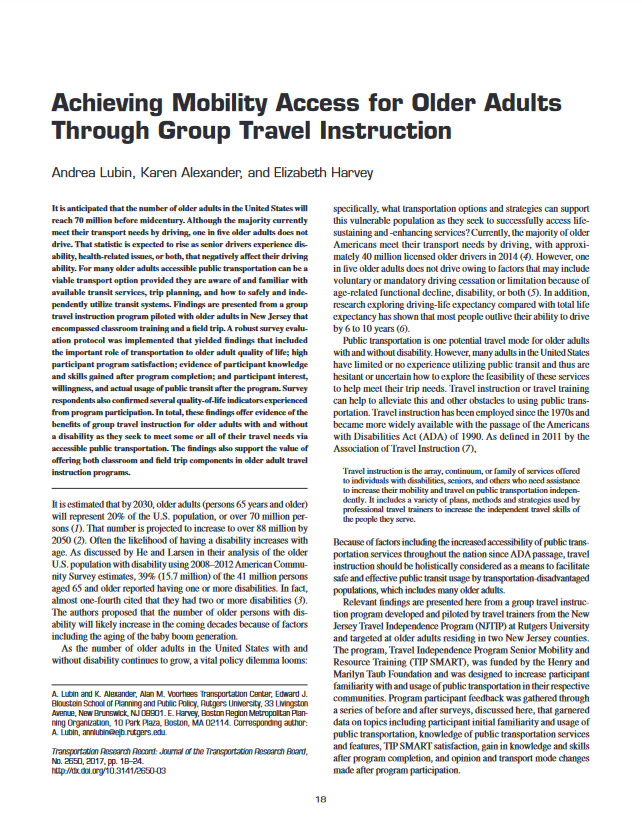Abstract
It is anticipated that the number of older adults in the United States will reach 70 million before midcentury. Although the majority currently meet their transport needs by driving, one in five older adults does not drive. That statistic is expected to rise as senior drivers experience disability, health-related issues, or both, that negatively affect their driving ability. For many older adults accessible public transportation can be a viable transport option provided they are aware of and familiar with available transit services, trip planning, and how to safely and independently utilize transit systems. Findings are presented from a group travel instruction program piloted with older adults in New Jersey that encompassed classroom training and a field trip. A robust survey evaluation protocol was implemented that yielded findings that included the important role of transportation to older adult quality of life; high participant program satisfaction; evidence of participant knowledge and skills gained after program completion; and participant interest, willingness, and actual usage of public transit after the program. Survey respondents also confirmed several quality-of-life indicators experienced from program participation. In total, these findings offer evidence of the benefits of group travel instruction for older adults with and without a disability as they seek to meet some or all of their travel needs via accessible public transportation. The findings also support the value of offering both classroom and field trip components in older adult travel instruction programs.
